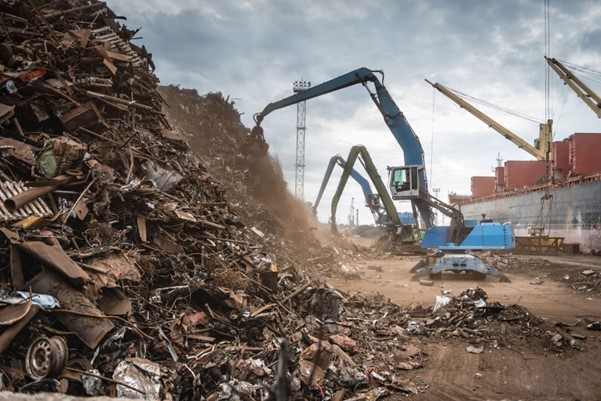The construction site waste disposal and collection process forms part of many different industrial and business practices. While it is one part of it, it often constitutes the largest amount of waste that needs to be handled.
As with any waste management practice, construction site waste needs to be disposed of in a safe and secure manner. Doing so not only prevents potential harm to human health, but it also acts as a safeguard against potential environmental harm.
This blog explores common construction site waste disposal and collection processes. It looks at how they form part of general waste management best practices, and also sheds light on Australia’s on part to play.
Understanding Construction Site Waste Disposal
Construction waste is any of the waste created during the construction process. It is commonly liked with demolition waste due to the often large chunks of varying waste types found in both.
As with any waste type, correct disposal methods must be followed. However, when it omes to construction site waste, there are often additionally measures that need to be taken to ensure safe disposal for everyone involved.
Recent innovations within the waste management industry have seen more effective measures for construction waste disposal being adopted. These include creating recyclable building materials, as well as other waste reduction methods.
The Importance of Proper Construction Waste Management
Proper management of any waste type is a must, and it is especially important when it comes to the often large volumes of waste produced during the construction process. Added to this, there are often different waste types with this, some of them including hazardous waste.
The importance of proper disposal can be broken down into three main categories, all of which are relevant to the average business owner. Additionally, these categories are often found in most common types of waste management.
Environmental Impact
The environment should not be damaged during any waste disposal and collection process. This is part of a larger commitment within the waste management industry to lessen the burden already placed on our planet.
Companies like Cleanway go a long way to ensure this. We are EPA-certified, which helps us to have the necessary guidelines in place to safely management construction and demolition waste.
Human Health
No human should be placed in any danger during the construction waste disposal process. Working with a waste management company helps to ensure this as their professional team know and understand the common risks involved.
Additionally, many come prepared for any eventuality that might occur. This means that they can act when necessary to prevent further harm.
Cost Savings
Unnecessary expenses often come about when improper waste disposal methods are used. This can be especially harmful when they involve the large quantities of waste produced during construction and demolition waste disposal process.
Furthermore, major waste management companies like Cleanway know what they are doing when it comes to waste disposal. They might cost something, but they will likely save money in the long run.
Common Types of Construction Waste
Construction sites generate a variety of waste, some of which can be reused or recycled.
- Timber
- Concrete and Brick
- Plastics
- Metals
- Packaging Materials
- Hazardous Waste
- Recycled building materials
Strategies for Efficient Construction Waste Disposal
In order to ensure that you are participating in as effective construction waste disposal practices as possible, it is important that you consider the following points. Many of them align with general waste management best practices.
Additionally these strategies work towards building a more sustainable way for construction and demolition waste to be disposed of. Working alongside a company like Cleanway will help with the implementation of these ideas.
Conduct a Waste Audit
There is a major reason why waste audits are a valuable tool when it comes to waste management. Their main goal is to find ways to create waste systems that not only work but are effective for your specific needs.
Conducting a waste audit can also help to improve many different aspects of disposing of construction materials. They can provide a general guideline that ensures correct and safe practices are put into place.
Waste Segragation
Waste segregation is the process of storing different waste types with their own kind. It is particularly important when it comes to managing hazardous waste or chemical waste, both of which can be present at construction sites.
Additionally, waste segregation helps with the overall efficiency of waste streams beyond your immediate surroundings. At some point the waste will be separated, so doing it yourself goes a long way to help with this process.
Reduce, Reuse, and Recycle
These three practices are a major part of effective waste management. While they do not cover the entire scope available, they are a great starting point for people working with demolition and construction waste.
They have the added benefit of helping your employees become more mindful about how they manage their daily waste. This builds onto what work you are doing, and can help improve a company in surprising ways.
Hire Professional Waste Disposal Services
Working with professionals is difficult to argue against. Waste management companies like Cleanway know what they are doing and are very effective at providing the best possible service for you specific needs.
When it comes to construction site waste disposal, they can provide both the necessary experience to make the process work seamlessly. They can also give you the assurance that it is being done according to environmental best practices.
Cleanway’s Construction Waste Disposal and Collection Services
At Cleanway, our construction waste disposal and collection services align with both local and global waste management standards and practices. As an EPA-certified company, we make sure to manage waste safely.

